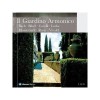Composers
Johann Christoph Pez (9 September 1664 – 25 September 1716), also Petz, was a musician, Kapellmeister and composer.
Pez was born in Munich. From 1676, he was the tower watchman and later the choir director at the Church of Saint Peter in Munich. In 1688, he became a musician at the court of prince Maximilian Emmanuel, Elector of Bavaria who offered him the opportunity to pursue his musical studies in Rome with the leading Italian composer Arcangelo Corelli. In 1694, Pez was in the service of Joseph Clemens, Archbishop-Elector of Cologne at his residence in Bonn, working to improve the prince's chapel orchestra. In 1695, he became Kapellmeister and advisor to the prince.
Returning to Munich in 1701, he remained for five years at the court's chapel. In 1706, he became the senior Kapellmeister (Oberkapellmeister) of Eberhard, the Duke of Württemberg, a position he held until his death. Under his directorship, the chapel orchestra expanded considerably. He died in Stuttgart.
Like many of his contemporaries, Pez was heavily influenced by the French style, and he was one of many imitators of Jean-Baptiste Lully.
Although largely forgotten today, he was mentioned in a lyric poem written by Georg Philipp Telemann in 1730, who placed Pez beside the names of composers like Händel, as a grand composer of his era, singling out in particular the quality of his sonatas.
Refine by search
view allBiography
Johann Christoph Pez (9 September 1664 – 25 September 1716), also Petz, was a musician, Kapellmeister and composer.
Pez was born in Munich. From 1676, he was the tower watchman and later the choir director at the Church of Saint Peter in Munich. In 1688, he became a musician at the court of prince Maximilian Emmanuel, Elector of Bavaria who offered him the opportunity to pursue his musical studies in Rome with the leading Italian composer Arcangelo Corelli. In 1694, Pez was in the service of Joseph Clemens, Archbishop-Elector of Cologne at his residence in Bonn, working to improve the prince's chapel orchestra. In 1695, he became Kapellmeister and advisor to the prince.
Returning to Munich in 1701, he remained for five years at the court's chapel. In 1706, he became the senior Kapellmeister (Oberkapellmeister) of Eberhard, the Duke of Württemberg, a position he held until his death. Under his directorship, the chapel orchestra expanded considerably. He died in Stuttgart.
Like many of his contemporaries, Pez was heavily influenced by the French style, and he was one of many imitators of Jean-Baptiste Lully.
Although largely forgotten today, he was mentioned in a lyric poem written by Georg Philipp Telemann in 1730, who placed Pez beside the names of composers like Händel, as a grand composer of his era, singling out in particular the quality of his sonatas.



